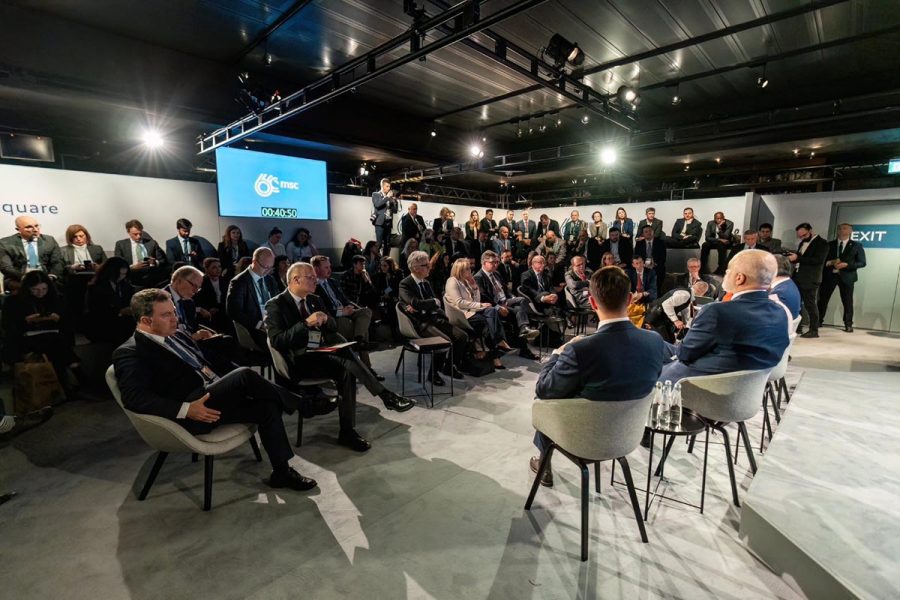At the esteemed Munich Security Conference, a cornerstone event in global security discourse, leaders from North Macedonia, Albania, and Montenegro have passionately renewed their countries’ commitment to joining the European Union by the year 2028, advocating for the initiation of membership discussions as soon as possible.
North Macedonian President Stevo Pendarovski emphasized his country’s dedication to the European path, referencing the significant name change compromise with Greece as a testament to their EU aspirations. Despite this major step and subsequent NATO membership, EU accession remains elusive. “Seventeen years of patience have not dampened our European aspirations,” stated Pendarovski, who also called for necessary reforms within the EU’s decision-making framework to facilitate the inclusion of new members.

Albanian Prime Minister Edi Rama echoed the sentiment of eagerness for progress, emphasizing the desire for the start of negotiations rather than immediate EU membership. Highlighting the journey since Albania’s attainment of candidate status in 2014 and the commencement of formal talks in July 2022, Rama views the negotiation process as crucial for the nation’s development.
Montenegro’s President Jakov Milatovic set an ambitious target, aiming for EU membership by 2028. Following Croatia’s integration into the EU, Montenegro and its Balkan neighbors have been actively working towards aligning with European standards, anticipating their inclusion in the union.
The 60th Munich Security Conference provided a vital platform for these nations to express their aspirations and concerns, amid a backdrop of international challenges and the absence of delegates from Russia, Iran, and North Korea due to prevailing geopolitical tensions.
As the Western Balkans forge ahead on their path to EU membership, the European Union stands at a pivotal juncture, contemplating its expansion strategy amidst internal and external pressures. The resolution of these ambitions and challenges will be critical in shaping the future of the region and its relationship with the broader European community.
Photo: twitter/JakovMilatovic
